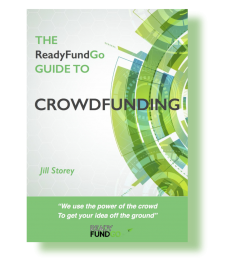
Crowdfunding: Getting your ducks in a row
Crowdfunding in Australia: Some Legal Considerations – Getting Your Ducks in a Row
“If I create a crowdfunding campaign, how can I stop someone stealing my idea?”.
“What can I do to protect my idea from a legal perspective?”
“Should I register a company before or after launching my crowdfunding campaign, if at all?”
“Is there anything else I should be aware of? Are there any taxes to pay?”
These are some of the many questions you might have on your mind as you are thinking about using crowdfunding to receive financial support for launching your brilliant new product or service.
The fact is that crowdfunding has far-reaching commercial and legal impacts. For example, your competitors might be closely monitoring innovations in their field for inspiration.
However, hiding your idea from the public is never a solution when you want to assess market potential, especially if other funding alternatives are not available to you. That is why we have written this post to give you a quick overview of legal aspects you should consider before launching a campaign.
Registering a Patent

Protecting your idea
Probably the best way to prevent idea theft is to apply for a patent and obtain the right to “stop others from manufacturing and using or selling your invention in Australia without your permission.” It’s essential you do so before the start of your crowdfunding campaign, though, as your invention may no longer qualify as being “novel” from a legal standpoint if displayed publicly.
But here’s the catch: patent registration is expensive (several thousand AUD) and it can take several months or even years before you officially receive the exclusive right to exploit your invention commercially — all of this before you are even sure your product will generate any demand!
Fortunately, you can still go ahead with your campaign and protect your IP rights at a relatively low cost by filing a provisional patent application. Doing so gives you up to 12 months to go ahead with full registration, and, therefore, some time to assess the market potential of your invention.
Although this provides some protection, you still always need to think carefully about the level of detail you disclose publicly about your product, and crowdfunding campaigns are no exception.
It is important to get the balance between exciting the crowd about your new idea and providing enough information to provide credibility and answer any questions, and ensuring that your technical detail and know-how are protected.
Setting Up a Business
Besides looking more professional to prospective backers, the advantage of owning a limited liability business is that it protects your private assets – that is it limits your liability.
A company is a distinct legal entity separate from its shareholders or officers. If you do decide to go down this route make sure you look into the strict legal obligations and set up costs associated with it.
In addition to providing a limitation of liability it is also easy to transfer ownership of the business by selling shares rather than individual assets. Sometimes the taxation regime may be more favourable.
Protecting your brand
Probably you have invested in a brand to go alongside your product — name, logo, visual identity — and this how backers are now likely to make the distinction between you and competing products. So what can you do to ensure your distinguishing features remain yours is to register a trademark that grants you exclusive rights to use specific words such as your company name, a combination of words, or words and a graphic.

Registering your trademark
However, bear in mind that trademark protection only applies in the country or region where it’s registered and must be renewed every ten years.
Taxation consequences
When you are determining the size of your crowdfunding target it is important that as well as taking into account platform fees, you also consider any taxation consequences and factor these into your budget.
If you are in Australia the Australian Taxation Office website provides some helpful guidance –
If you have a specific taxation question in respect of your crowdfunding campaign we recommend that you take professional advice.
Many of the issues discussed above will be faced in the normal development of your business activities an although relevant for a reward-based crowdfunding campaign, they are not unique to crowdfunding.
Contact us today at info@readyfungo.com if you would like to discuss this post. We hope that you found the insights helpful.



